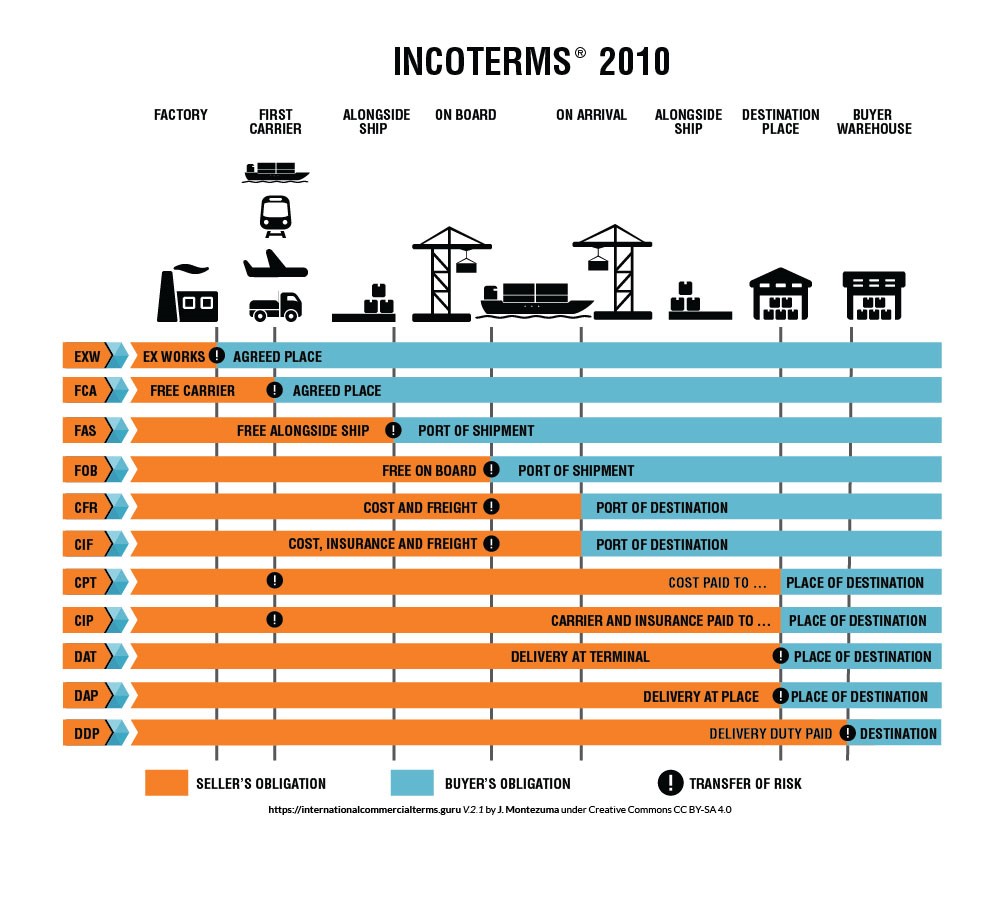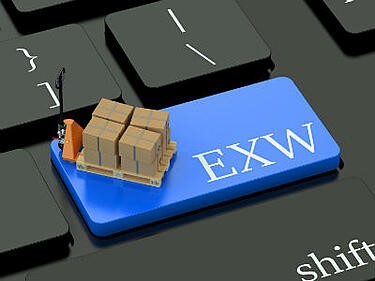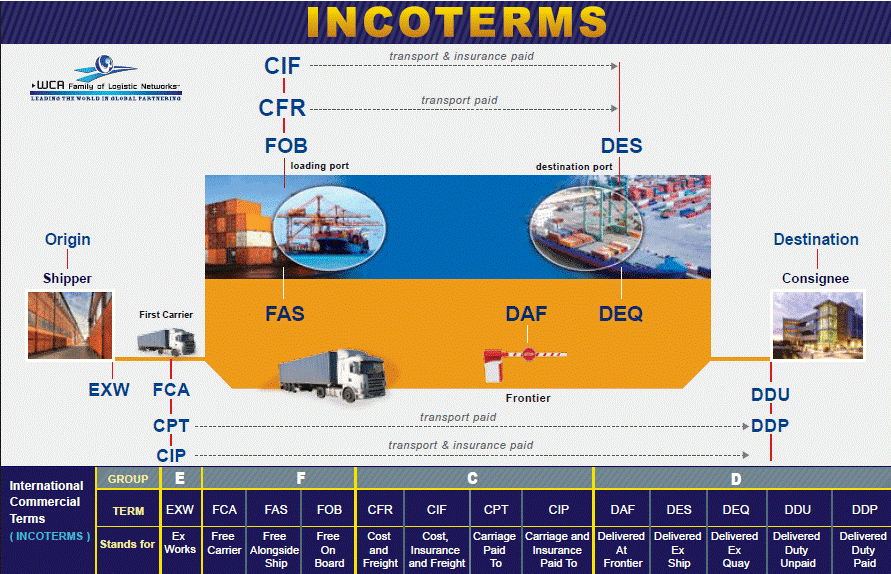Different Incoterms
What is Incoterms and What is the Purpose of it?
With a growing global economy, the number of international trades is growing year after year. Strict instructions and responsibilities need to be agreed upon. And with barriers such as distance, language, and culture, it can be a challenge to move products internationally. To manage this challenge, a set of rules (called Incoterms) have been made by The International Chamber of Commerce. The incoterms serve to minimize the risk for both buyer and seller, during the transport of goods.
Different Incoterms: What Do They Mean?
Incoterms help to make international trading easier by providing standard terms that are uniformly recognized across the world. These trade terms are frequently used in domestic and international trade contracts.
Types of Incoterms
There are currently 11 incoterms in use known as (Incoterms 2010/2015):
- CIF (Cost, Insurance and Freight)
- CIP (Cost and Insurance Paid to)
- CFR (Cost and Freight)
- CPT (Carriage paid to)
- DAT (Delivered at Terminal)
- DAP (Delivered at Place)
- DDP (Delivery Duty Paid)
- EXW (Ex Works)
- FAS (Free Alongside Ship)
- FCA (Free Carrier)
- FOB (Free on Board)
Incoterms Used in the Medical Device Industry are:
- CIF (Cost, Insurance and Freight)
- CIP (Cost and Insurance Paid to)
- CFR (Cost and Freight)
- DAP (Delivered at Place)
- EXW (Ex Works)
- FCA (Free Carrier)

MEALIS incoterm is EXW (Ex Works), this means when importing on Ex Works terms the buyer is responsible for the whole shipment from door to door. All costs and liabilities are with the buyer and the sellers’ responsibility during the whole transportation process is to ensure that the goods they are selling are made available for collection at their premises.

When using these terms all of the costs and risks of shipping the goods lie with the buyer alone. As a result, with the supplier’s assistance, Ex Works terms are a good way for the buyer to get a clear picture of all of their costs upfront.
Apart from when the goods are with customs, the buyer is in control of the entire shipment. This gives the buyer full visibility and ensures that the supplier isn’t inflating their local costs or adding a margin to the delivery fee.
Added to that, the seller is not required to load the goods onto a collecting vehicle and, if they do, it is at the buyer’s expense. EXW is the only Incoterm where the goods are not required to be cleared for export, although the seller has the duty to assist the buyer (at the buyer’s expense) with any needed documentation and export approvals.
After collection, the buyer must provide the seller with proof that they collected the goods. From collection, the buyer is responsible for all risks, costs and clearances.
MEALIS role within the Ex Works terms (seller)
MEALIS role is so important to provide the buyer with the correct information that eases the custom clearance and provide any required document to apply for all necessarily approvals for clearing at the final destination.
Any incorrect information provided, buyer will be exposed to pay additional costs.
MEALIS logistics team is completely aware about these issues and works so closely with all ends (supplier, warehouse team, forwarder and customer (buyer)) in order to maintain smooth delivery.
MEALIS usually follows certain shipping module from supplier to final destination and from MEALIS warehouse at the free zone in Lebanon to final destination:
From Supplier / MEALIS Warehouse

Into Final Destination, Buyer:

There used to be 13 types of incoterms and known as (Incoterms 2000) and these types has been reduced to be 11 under Incoterms 2010. Four Incoterms (DAF (Delivered at Frontier), DES (Delivered Ex Ship), DEQ (Delivered Ex Quay), DDU (Delivered Duty Unpaid)) have been replaced by two new Incoterms (DAT (Delivered at Terminal) and (DAP (Delivered at Place)). The replaced Incoterms DAF, DES and DEQ were not used much in day to day trading. Although many different Incoterms exist, sellers and buyers often underestimate the value of Incoterms and their impact upon international trade.

Failure to Use Incoterms Leads to Problems.
Parties in international shipping must understand how Incoterms vary. Failure to understand the correct definition of each Incoterm used will lead to problems throughout the subsequent supply chain. Furthermore, misused Incoterms may affect payment of goods, delivery schedules, increased costs, poor inventory control, and negative customer interactions. From distribution centers to shipping recipients, improper or missing Incoterms dramatically disrupts the flow of goods and damages a given company’s reputation.
MEALIS being a regional distributor of medical devices for the Middle East and Northern Africa, can lead a successful shipping process especially that the medical sector is very critical in its requirements (temperature requirement, temperature storage, special certificates needed,…) to have shipments cleared on due time at final destination. Finally, it will be up to the seller and buyer to choose the suitable incoterm that complies with their business model and benefits.
